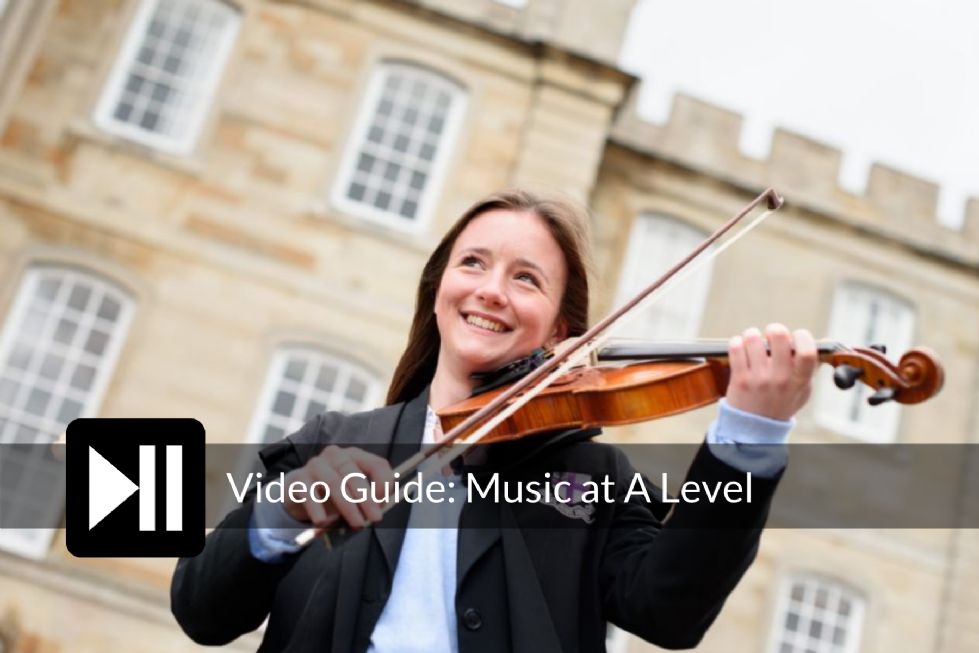Music
Music occupies a central role in the life of all Kimboltonians. Almost half of our students choose to learn an instrument or have singing lessons in school, and we offer countless opportunities for pupils to perform with a busy programme of weekly lunchtime concerts, large public performances, concert visits, assemblies and tours abroad. Furthermore, our House Music competitions see every pupil on stage at some point in the year.
The Music School is accommodated in the attractive Mews Quad. It boasts excellent teaching, rehearsal, ICT and recording facilities. We are also fortunate in having use of the Castle State Rooms, a fine venue for weekly recitals and ABRSM exams; the Lewis Hall hosts our major concerts and musical productions.
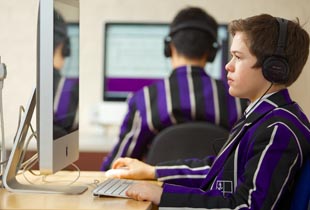
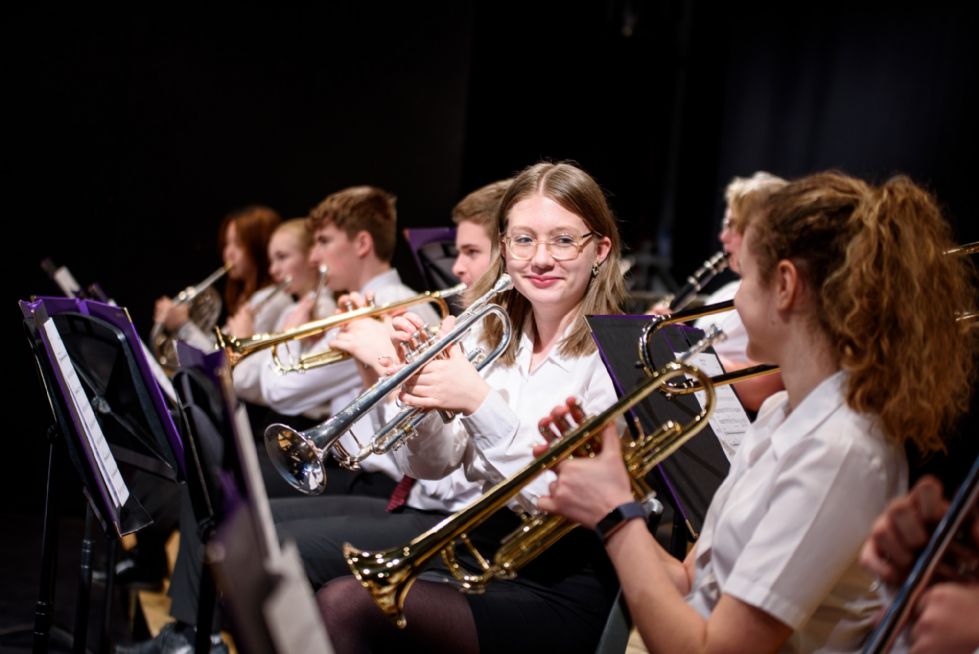
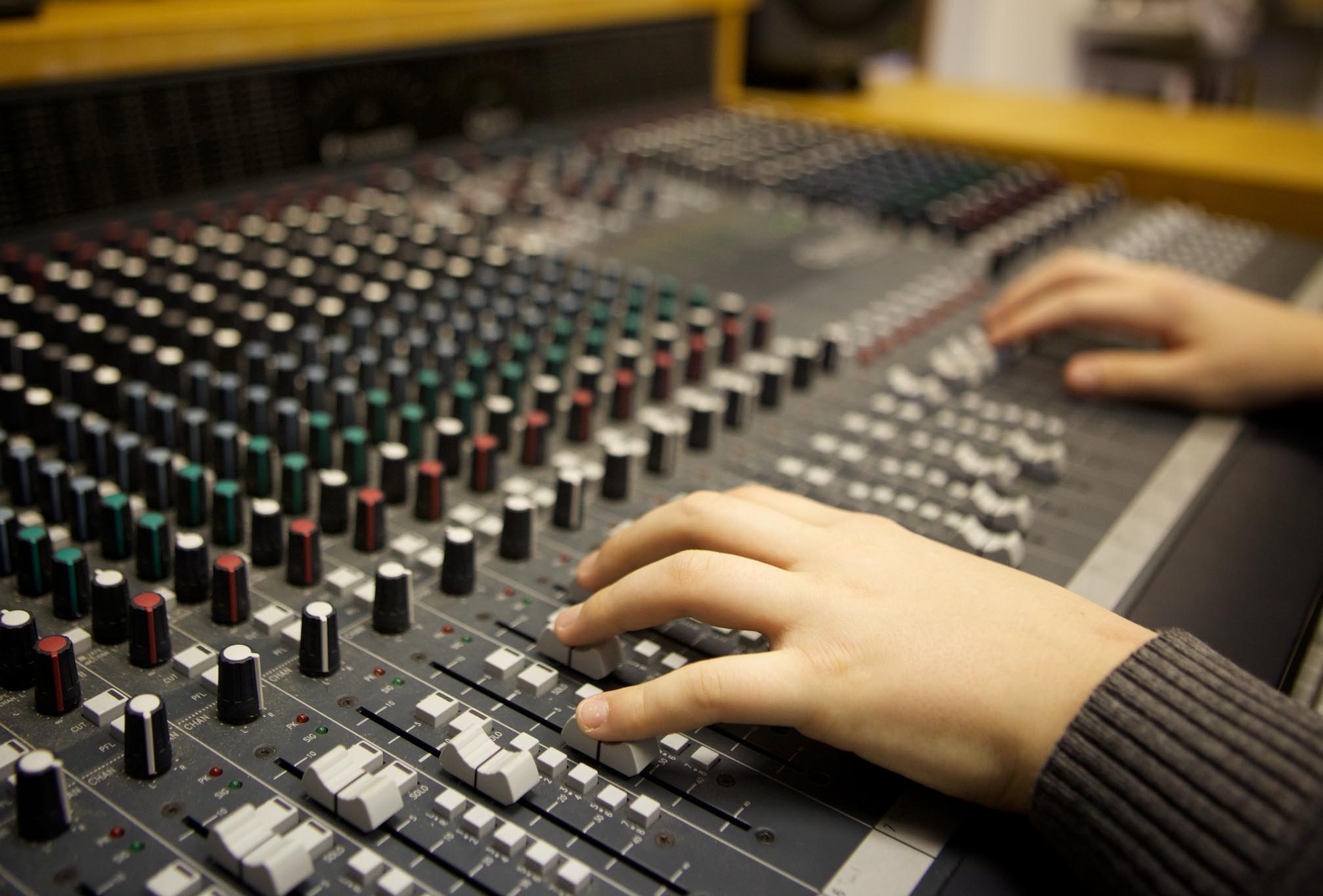
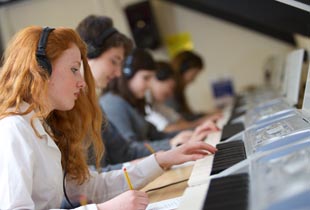
Departmental Staff
Music Administrator
Curriculum
First to Third Forms – compulsory for all pupils
All pupils in the lower school have weekly class music lessons. They learn how music works through a rich and balanced diet of listening, composing and performing.
Fourth and Fifth Forms – GCSE optional subject
- Eduqas GCSE Music
- Assessed via one written exam, one performance (non-examined assessment, minimum one solo and one ensemble, 30%), one composition (non-examined assessment, comprising two contrasting compositions, 30%).
Music is a fascinating and far-reaching subject that can suit all sorts of pupils, not just the most able musicians, with skills in listening, analysis, the history of music, composition and performance all included as part of the course. You will develop your knowledge and understanding through four interrelated areas of study: musical forms and devices, music for ensemble, film music, and popular music.
Many of the common musical forms and devices used by composers today have their origin in the Western Classical Tradition. By following this area of study, you will be able to make links between the music we listen to as individuals, the pieces we play and our compositions, too. Music for ensembles forms the basis for a study of texture and sonority, covering a diverse range of musical styles such as jazz and blues, musical theatre and traditional chamber music.
The film industry is of commercial and cultural interest in both the UK and abroad. There are many areas of specialism for musicians within this industry and we will, in addition to considering how music for film is created, developed and performed, and the impact this can have on an audience, compose our own music to create mood and atmosphere through engaging with the story of a film. Finally, popular music is a wide-ranging and diverse art form encompassing several distinct genres and idioms, and the course allows time to explore a variety of music and the ‘behind-the-scenes’ work involved in its production.
Sixth Form – A Level optional subject
A Level Music offers a rewarding insight into how music works and the story of its evolution. The course breaks down into the three components akin to GCSE Music: performance, composition and listening/analysis. Much of the classwork is discussion based and investigative. You will learn how composers go about their craft, understanding their techniques and how their work has been influenced by society. In doing so, you will learn how to write analytically and meaningfully about music as well as develop your own skills as a composer in a response to the studies.
The curriculum also provides a wide survey of different types of music, ranging from Baroque concertos, Mozart’s opera The Marriage of Figaro and Romantic piano music, through to Music for Theatre by composers such as Rodgers & Hammerstein, Schönberg, Sondheim and Jason Robert Brown, as well as ‘Art Music’ of the 20th century.
Beyond the classroom: Beyond the classroom... One of the greatest joys of studying Music is the sheer breadth of the subject. In addition to the obvious wealth of music composed, from Antiquity to Ed Sheeran, there are countless different ways of extending one's knowledge and understanding of Music, depending on your own particular interests. From studying the socio-political contexts within which individual composers work, right through to looking at the more scientific acoustic properties of Music, or an exploration of the various cultures of World Music or the cutting-edge field of Music Technology: there is certainly something for anyone and everyone to investigate as they delve deeper into the subject. The resources available to support your research are almost as endless as the range of music that exists to study and enjoy, and the chance to relate this to performance can lift your study to an even higher plane.
- View our Sixth Form Prospectus
Extra-Curricular Activities
There are numerous ensembles and choirs catering for all tastes and abilities. Staff direct some while others are driven by the students themselves. We also offer free musicianship, theory and aural tuition at lunchtimes.
In addition, there are also many performance opportunities to cater for all abilities and musical tastes. Recent highlights have included staged productions of Les Misérables and Sweeney Todd and concert performances of Mozart’s Requiem, Handel’s Messiah and the Chichester Psalms by Leonard Bernstein.
Further information on individual tuition and our extra-curricular opportunities is in our Creative Arts section.
Regular Trips, Visitors and Competitions
We regularly take our GCSE and A Level groups to see professional concerts and productions. Our location makes it feasible to travel to venues in London and Birmingham for evening performances. Symphony Hall and the Barbican are regular favourites.
We have strong links with local Music Services, with a number of pupils each year successfully auditioning for the various County ensembles in our area. We have also enjoyed success with pupils joining the National Youth Orchestra and the National Children’s Orchestra.
